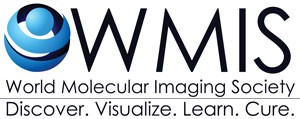Small-molecule probes can illuminate biological processes and aid in the assessment of emerging therapeutic targets by perturbing biological systems in a manner distinct from other experimental approaches. Despite the tremendous promise of chemical tools for investigating biology and disease, small-molecule probes were unavailable for most targets and pathways as recently as a decade ago. Novel small-molecule probes are enabling the exploration of biological pathways and therapeutic hypotheses to help bridge the gap between biological research and the development of medicines and also highlight the need to innovate the science of therapeutic discovery.
Translational Theranostics for Prostate Cancer
Martin G. Pomper, MD, PhD, Professor Johns Hopkins Medicine Department of Radiology and Radiological Science, Director of Nuclear Medicine and Molecular Imaging, Professor of Oncology and Radiation Oncology and Molecular Radiation Services, Johns Hopkins University, Baltimore, MD, USA
This presentational discusses translational theranostics with a focus on prostate cancer. The critical role of imaging is discussed for early detection of disease. Personalized medicine or precision health is also discussed and how it leverages individual differences in genetics, environment and lifestyles provide insight into specific treatments. Agents undergoing translation will be discussed, including those targeting the prostate-specific membrane antigen (PSMA), as well as near-term clinical agents.
Novel Theranostics Targeting Glutamine Metabolism in Solid Tumors
Michael Schulte, Vanderbilt University, Nashville, TN, USA
Talk Outline:
- Introduction to glutamine metabolism in oncology
- ASCT2 function in glutamine transport
- V-9302, a novel inhibitor of ASCT2
